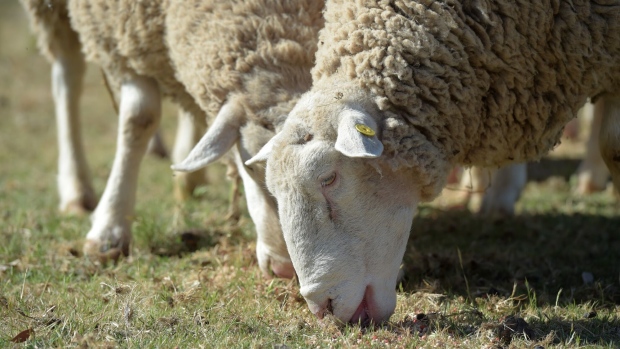Feb 4, 2024
Thousands of Australian Sheep and Cattle Are in Limbo After a Month at Sea
, Bloomberg News

(Bloomberg) -- Australia has rejected a request for the re-export of sheep and cattle on the Bahijah, citing concerns over the health and welfare of the animals that have been in limbo a month after they initially went to sea.
The agriculture department was unsatisfied with the transport arrangements for the livestock to their final overseas destination, or that the requirements of the Export Control Act will be complied with before they are imported, it said in a statement late Monday.
The Bahijah departed Fremantle port in Western Australia on Jan. 5 with over 16,000 sheep and cattle on board, but was diverted away from the original route to the Middle East due to attacks on vessels in the Red Sea. Some of the animals were unloaded on Friday at the request of the exporter.
The application to re-export the animals on the Bahijah to Israel via the Cape of Good Hope was received on Jan. 26, the department said. The next steps for the livestock are commercial decisions for the exporter to make, it added.
The Australian Livestock Exporters’ Council said another ship was approved to export animals to Jordan and departed over the past few days, without naming the vessel. Ship-tracking data shows the Jawan left Fremantle last week, and Reuters reported it’s carrying 60,000 animals, citing WAFarmers.
The vessel will need to seek government approval 72 hours before entering the Red Sea as part of a contingency plan that allowed the ship to sail, according to the agriculture department. The agency also didn’t name the ship.
Australia is seeking to phase out the live export of sheep by sea because of concerns over animal welfare, and the trade has dwindled over the past 20 years. The Australian Livestock Exporters’ Council said some animals died after being unloaded from the Bahijah, according to a statement.
The agriculture department said on Sunday that the Bahijah was off the West Australian coast and was undertaking routine cleaning. There are adequate provisions for the livestock on board, the government agency said.
The Humane Society International Australia said the government should reject the exporters request, and that the animals should be unloaded and transferred to quarantine facilities. “These sheep have been through enough,” Nicola Beynon, the head of campaigns at HSI Australia, said in a statement.
(Recasts top with rejection of re-export request.)
©2024 Bloomberg L.P.






